NETONE CEO Lazarus Muchenje believes the state-owned mobile phone operator is on the road to recovery because of a back-to-basics strategy.
Muchenje (LM) told Alpha Media Holdings chairman Trevor Ncube (TN) on the platform In Conversation with Trevor that the strategy would turn NetOne into world-class mobile operator.
He said the strategy was already bearing fruit as shown by growth in NetOne subscribers and revenues. Below are excerpts from the interview.
TN: You have been at the helm of NetOne for just over a year now. What has been the experience?
LM: Correct. Well, Trevor, it's been quite exhilarating. It's been a great experience. It's good to be back home. It's good to be heading one of the key industry players in Zimbabwe. For me, leading NetOne is a privilege. It's not a right. It's a privilege. It gives me an opportunity to shape the
telecommunication sector in Zimbabwe and that also shapes the lives of many youngsters whose future is all about telecoms and ICT. So, creating a bright future for them, that is quite exciting.
TN: You came in from the diaspora with a very interesting character. Do you mind sharing your journey outside the country before you came in?
LM: Sure, you know it's interesting. I am sitting as a telecom guy today, but when I left the country I worked as an accountant and I went to join the most primary industry, you know. I was with a company selling caterpillars. That's actually how I left Zimbabwe. So, I started in the primary sector. But subsequent to that I then joined a small little company, which was called Vodacom that was starting off then in South Africa and it was quite an exciting journey. We grew that company from a small little company to a billion dollar company [it is] today. You know I subsequently left after having been at Vodacom International, Vodacom SA, (Democratic Republic of Congo), you know, the continent in general.
I then left and I went into banking with what is today probably the biggest bank by market share and by market capitalisation, First Rand Bank. I ran their personal mobile payments platform company that was operating on the African continent.
Very interesting, you know, that was actually the first company to do mobile payments in the world having been formed in 1998.
So, that was quite an adventure for me, so I have been in telecommunications, I have been in banking.
I then left. I actually purchased that company [Cell Pay] from First Rand with my management. We did a management buyout. We ran it for a while at great success with the mobile bank project in the Congo.
We were the payments partner with the World Bank, with the mobilisation of the DRC. We did quite well.
We sold that company and I moved on I went to do mobile advertising with some friends.
We sold that business in 2017 and in the process of that sale, that's when this opportunity came and I thought maybe it's an opportune time for me to go back home and make a difference.
TN: So, you are an entrepreneur in a way?
LM: Yes, I have been an entrepreneur for 10 years. I first purchased a company in 2008.
TN: And the journey has resulted in you receiving one of the most interesting accolades, being recognised in what you have done in the promotion of electronic transactions across the continent. Tell me about that and what have you done for you to receive that award?
LM: Yeah, Trevor, that came about during my stint at Cell Pay.
We, like I said, we actually beat these major European and American companies to become the World Bank's payments partner in the DRC. The task was enormous.
DRC is bigger than the whole of western EU put together with the other infrastructure and we had to pay demobilisation money for soldiers for two years using mobile payments.
This was at a time when there were no mobile payments except our system, so we managed to get it right.
We paid over a $100 million in two years and I think over and above that in the Zambian context in 2009/2010 we were moving over 20% of their GDP on their mobile money platform.
At that time mobile payments were just starting and there were no rules for us.
The regulators were actually giving us certificates of non-objection so that we could start.
TN: And the situation has changed now?
LM: It has changed dramatically. We now have big payments platforms here in Zimbabwe, Kenya, Uganda and something starting off in Tanzania. Well, in Tanzania it's big.
There is also something starting off in Nigeria and the situation has changed.
In China we know that most of the payments are now electronic and over the phone. We were pioneers in the space. We were just doing it.
TN: And you are bringing that experience to NetOne? Clearly that's a key skill that you are bringing. Tell us about your vision that you want to take the mobile payments as far as NetOne is concerned?
LM: Correct. Look at this stage we are a distant second in a market dominated by one player. Our vision is that in the next 12 months we will take a significant market.
So, that is really our view and the mission is quite simple for us.
We choose not to compete with the competition and there are few players in this market.
We choose to compete with ourselves and to try and be world-class because we do not believe that at this stage there is anyone world-class in this market in as far as mobile payments are concerned and I say that with a lot of respect and knowledge given that I was in this space way before the guys that are doing it here.
So I think that if we can be world-class as NetOne, we will be number one and that is going to take us 24 months to put that ecosystem in place, the people and the infrastructure in place.
TN: Interesting, you say with a lot of respect that you want to be world-class right now. What does world-class look like within the mobile money payment system?
LM: You know, world-class is when you give your clients similar service at an affordable price and a service that allows them to do more than just one thing.
So if you look at it, in this country it is quite a constraint on what you can actually do with your payments.
The proliferation of the product with the service that one can use here is still not there.
TN: You have seen interesting growth since you started, I mean growth and revenues as far as OneMoney is concerned, a growth of 750%. What is it that they are doing to get the attention of the market?
LM: The thing is that we said we want to be world-class, then we say how do we become world-class. We have got a roadmap. So we define that roadmap, which we now call a "back-to-basics" strategy.
It basically states we must do things correct the first time. That is what we are doing now. How does that impact mobile money? Our network is going to be working all the time. So you can't, when you try to make a payment, then you have no signal or the payments get cut-off. So we got to have the quality network and we are working very hard on that.
Our network has improved dramatically, it is arguably the best network in Zimbabwe standing at 99% availability.
In an independent survey done by the regulator, it was found that the market believed that NetOne is the best network today.
TN: That is research by the Postal and Telecommunications Regulatory Authority of Zimbabwe?
LM: Yes. It contracted an independent company to do that research and it shows that people are starting to understand that NetOne is the best network.
So if you take the best network and then overlay mobile payments on that, it is working when you want it to work, clearly we start to see some growth because we have solved the problem that our consumers have and that is a problem (of lack of a) reliable service.
TN: You have already hinted on the back-to-basics (strategy), what constitutes that strategy that you have been able to achieve this far?
LM: It is really simple and it is interesting. I have heard one economist saying that Zimbabwe was going back to basics and we said that Zimbabwe was now
adopting our strategy.
We laughed about it, but our back-to-basics strategy really comprises of all pillars.
The primary pillar in telecommunications is your network; you have to have a world-class network that is up all the time, hence our 99%.
So we have worked hard to ensure that we have fuel and that we have electricity. In other words, where we do not have electricity we must get transmitters.
We work with Zesa and we put transmitters in place and we can get electricity there. Pillar number two is quality distribution.
Once you have the network up, you must manage it so you have got to have a distribution that works and to that extent we only have 35 shops that we owned and we are trying to sell through that.
In the past year we have grown that and over 1 000 shops that we control, we do not own them, but we control them, that makes a huge difference in terms of how we can reach our customers.
So we now have a ubiquitous distribution channel. You can find our products all over the country.
Now you have got your SIM cards, airtime. You are calling on a great network, do you have a problem?
You must have a quality contact centre. Quality services is our third pillar. Our contact centre is magnificent.
It is the only one you can call in the country and you are answered the first time within 20 seconds.
Within three minutes your issues are resolved. So if you have a problem you call.
There is a friendly voice on the other side who will resolve the problem.
If they can't, they will call you back. You will find that our clients really appreciate that they won't get it anywhere else.
So that's another pillar.
That's the three operational pillars of back-to-basics.
The fourth one is the financial pillar, a small technical pillar in the sense that you need to have a quality balance sheet.
You can't work when you your balance sheet is not a quality one.
Because you know I always give the example that if your balance sheet is not a quality one, thus you are always dealing with the banks who want their money, you are dealing with the creditors who want their money.
So what is the CEO doing half of the time, managing creditors instead of managing the vision of the company and being productive.
So we have worked very hard on creating a quality balance sheet.
We have restructured a lot of our debt that we have on our balance sheet.
We negotiated with the external creditors. You would understand that some of our debts are also part of the national debt as we are a state-owned enterprise.
So the things that we are doing to manage our balance sheet actually will go a long way in helping the national balance sheet of Zimbabwe.
TN: Let's talk about the impact of the current fuel crisis. It's commendable that you are moving fuel generators to base stations and so forth, but what's that doing to your bottom line?
LM: Yes, it's a difficult time for Zimbabwe. It's a difficult time for commerce and industry.
Certainly for us as a telecoms player you wouldn't understand we are probably, apart from mines, some of the highest users of fuel.
So the impact on the bottom line is quite grave in the sense that number one, we don't have electricity.
Electricity was quite cheap, but now we have to buy fuel because it's scarce. (The price) is a bit higher than it was may be a few months ago, so the impact is quite huge.
But on the upside at NetOne, at least I don't know at other industries, we have been able to cut costs elsewhere.
What we did last year, we actually took $20 million worth of costs out of the network and marketing expenses.
So we have got a very agile and lean cost base that we are working with and that helps us to survive even these challenges we are facing now with high fuel prices and more fuel usage there on our network.
TN: As far as attending to your balance sheet, you are looking at moving away from being technically challenged as far as the balance sheet is concerned to being profitable in the next four to five years. How feasible is that, are you on track?
LM: I think we are ahead of our schedule.
TN: Fascinating. Tell us about that.
LM: So, I mean this quarter we will make more money than we have ever made in any year.
I think as a team we have done well. One talks about inflation or its inflationary increases, well not really for us.
As an industry we have had two increases in tarriffs: one was 100% and another one was 30-something percent. The bulk of our growth is coming because of the quality of our network, the success of the back-to-basics strategy. We actually have more customers. We are spending more per customer. So those are the ingredients that make a successful network, but why are the people spending more in a situation where one expects them to be spending less? The reality is that there is a wallet that people use for telecommunications. There is a bigger wallet that you use for everything else.
We have started to reallocate some of the wallets we had elsewhere with our competitors to
NetOne because of the quality data network, especially.
TN: So you are seeing a shift from competition to you. How significant is that?
LM: Exactly, they were significant.
TN: Can you share with us the numbers?
LM: I will share with you some numbers because I can't share with you all the numbers because you will publish it. Let me give you an example, just in the past two months or so we have grown our subscriber base like 200 000 and when we started in 2010 it was only two million.
So if I was growing at that rate, we would have grown to two million over 20 months, which took us 20 years to achieve. That's how much we have accelerated our rate of growth. Our spend per customer has just gone up more than five times.
Now you would understand when you look previously that the spend per customer on NetOne was lower than all the other networks and the assumption was always that we are the rural network. So we have got all the people in the rural areas and they don't have money to spend they are just receiving calls. But that's a myth, you know we have people in rural areas and we have people in urban areas. What we have done is back to basics.
TN: Back to basics?
LM: Yes, back to basics. Yes, to reallocate and redeploy our network to suit what the demand is. So, for example, we had some base stations in some parts of the country that were 4G, but there were no 4G phones there. So we are taking those and redeploying them to where there is demand for 4G services. So just that alone is improving our revenue, but also we have seen high value customers coming to NetOne. So the question really is if one is not on NetOne right now, then the experience you are getting is not the best experience in the country.
TN: You are selling NetOne very well right now. Let's get to the numbers which I found fascinating. You have moved from a loss position to a profit position in a very short space of time. You have grown your subscriber base by 25% from 2,6 million to 3,3 million, that is 2017 to 2018. You have grown your revenue base by 13%. You have grown your data subscribers by 5%. You have grown the data revenue and the question that I have for you is: How have you done this?
LM: You know, Trevor, the Zimbabwean people were yearning for an alternative. An alternative to what was there and we at NetOne are providing quality service now. This is not only about the network, it's also about how we conduct ourselves with the customers, how we conduct ourselves within the community. So we also defined ourselves last year as the caring network.
So we have a network that identifies with the communities that we do business in and when you do that, you start to find that people still want to work with you. People want to associate with you because you are the network that is not only taking money from them, but also investing in the same communities. You know the primary reason for the growth really is application of our people and the deployment of our capital and equipment in the rural areas. My primary role as CEO of NetOne is to employ and optimally deploy the resources that we have, that may be people or capital or infrastructure. We have done that quite well with the team for the past 12 months.
So once we do that, then we say guys, let us be world-class in anything we do. When we come to work, let's make sure that we are better today than we were yesterday. People stand up and notice.
TN: I am listening to you with total fascination because we are talking about a parastatal, a state-owned enterprise.
LM: State-owned enterprise.
TN: What would you say has been the number one thing that has made you to achieve all this in a very short space of time?
LM: Call to change
TN: How sustainable is that?
LM: We have sustained enough for 18 months and it's getting a life of its own— people like to succeed nobody, likes to fail.
So at first you start off and you are preaching something that is foreign, but after a while people embrace it because they are seeing it as a success and they are succeeding and they are being applauded and they want to do more of the same that gets them the applause.
So the other thing that we have also done is we are getting champions of excellence because you have to create centres of excellence, which people can rally around in their little communities because there are many communities.
You have to create in each group a champion of excellence that can create a continuous vibe and demand for excellence.
TN: This is culture change in an organisation that has 700 people, that's a huge achievement inside just 17 months.
LM: Well, I will take that as a compliment. It becomes easy if you are very clear about what you want to do. So I think my team and I, and the board, we have been quite clear that we want to be world-class and that here is the roadmap. It's not a complicated story on a paper about your mission. Our roadmap is very clear. When you are clear about what you want to do, then you can lead easily. If you are not clear about exactly what you want to be, it's not easy to lead. I often tell my executive team that our actions and our words are signals to the company because I can't come in contact of all the 700 people, but they can hear what I say and they see how I act and these signals are very important.
So every day we intend to send out positive signals about world-class, being the best, changing our company and country positively and I will also engage with the staff at least once every quarter. I go around the country and start a briefing where I encourage the staff and I share with them the journey that we have started which is a great journey and we love that they love to see that we are succeeding. We have always been told that we are not succeeding, we are not good enough but it's easy.
TN: You can't succeed . . .
LM: You can't succeed, is this really us and you start to see the belief in the eyes, you can see gates, the way people walk has changed.
TN: Do you think if the proverbial bus ran over the ceo, this culture change and would be sustained.
LM: It will outlive me, yes. I think the NetOne community now understands what it is to be a world-class winners. Like I said, you should see the spring in their step and I don't think that it will be extinguished by one person not being there.
- the standard
 Sanganai Expo preparation descends into chaos
Sanganai Expo preparation descends into chaos  South Africa is in serious trouble
South Africa is in serious trouble  US halts visa services for Zimbabwean nationals
US halts visa services for Zimbabwean nationals  ZSE and VFEX recover after weak 1st half
ZSE and VFEX recover after weak 1st half  Gold edges up as traders await guidance
Gold edges up as traders await guidance  Zimbabwe Agricultural Show 2025 kicks off
Zimbabwe Agricultural Show 2025 kicks off  Young Investment Professional (YIP) Graduate Programme 2019
Young Investment Professional (YIP) Graduate Programme 2019 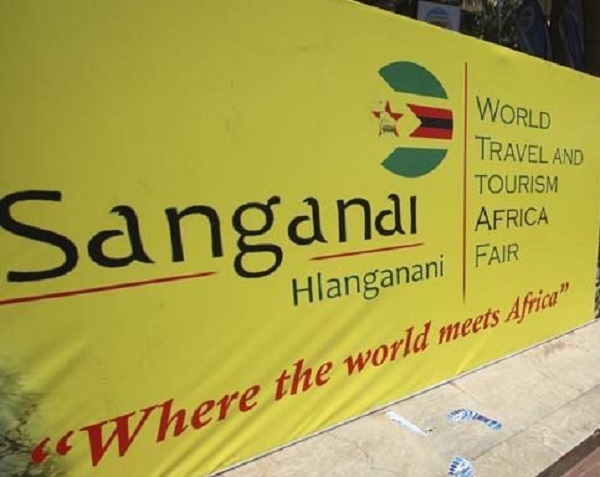


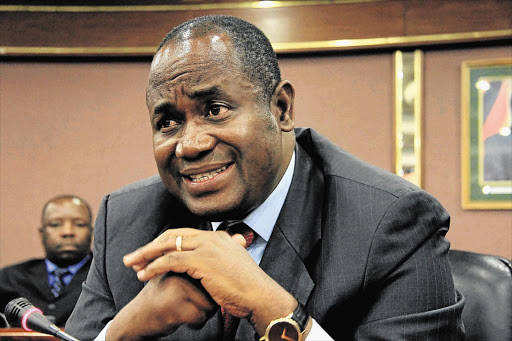
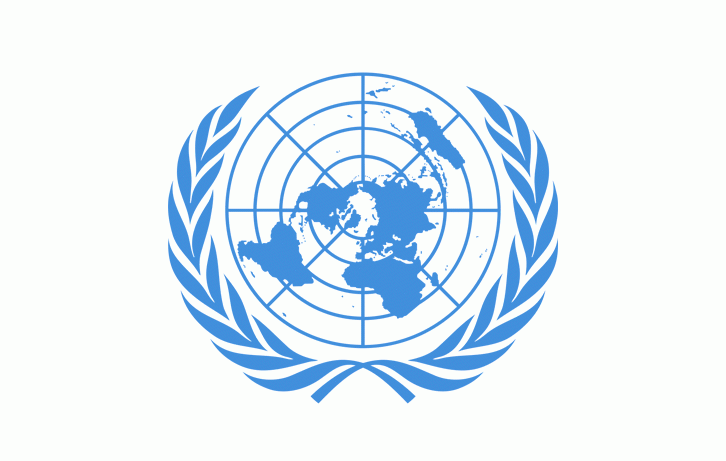
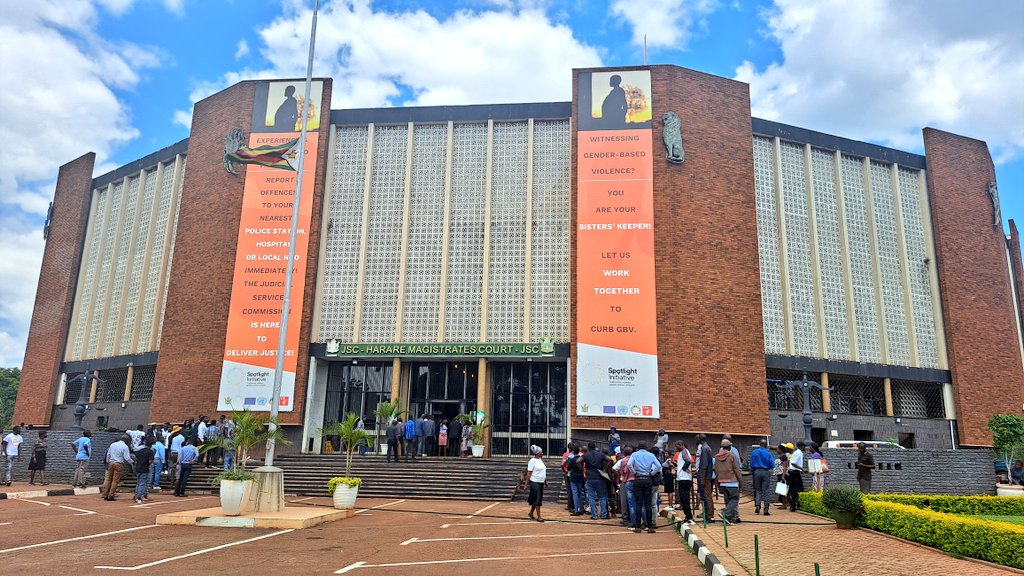
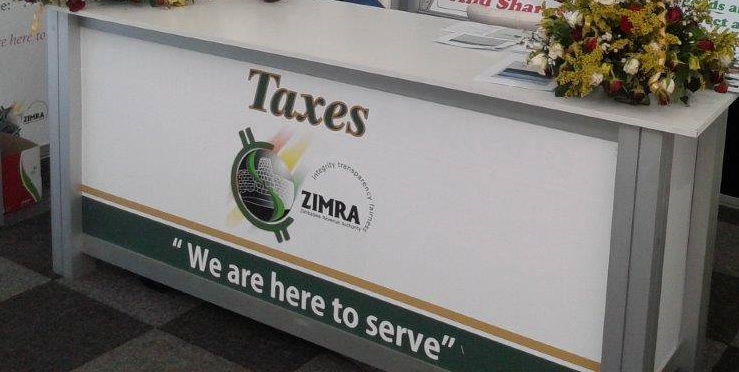
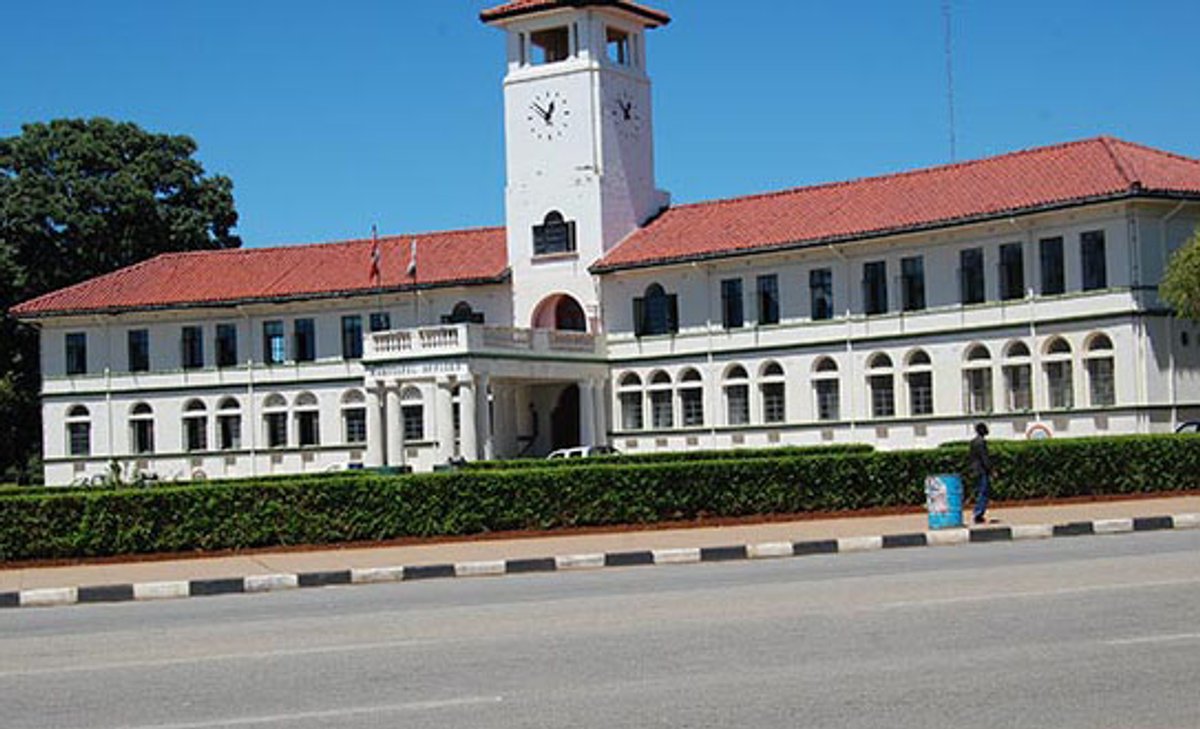
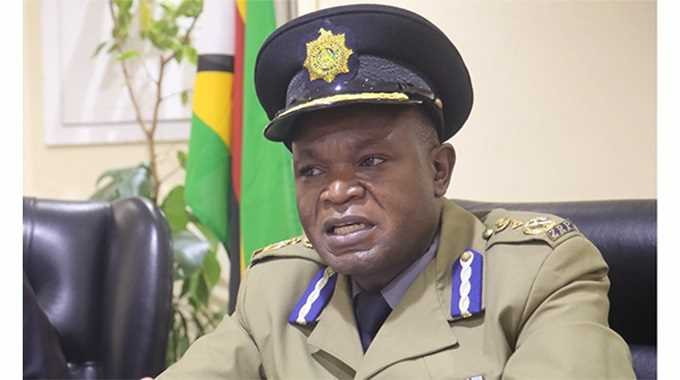
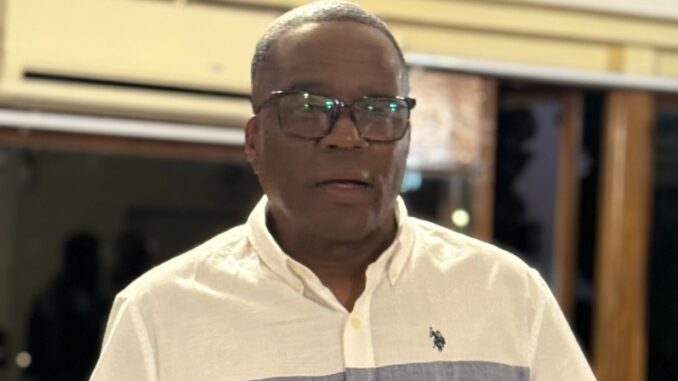

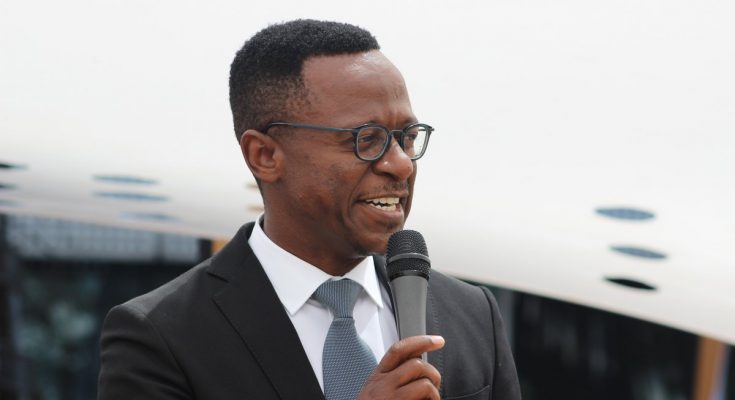
 Young Investment Professional (YIP) Graduate Programme 2019
Young Investment Professional (YIP) Graduate Programme 2019
Editor's Pick